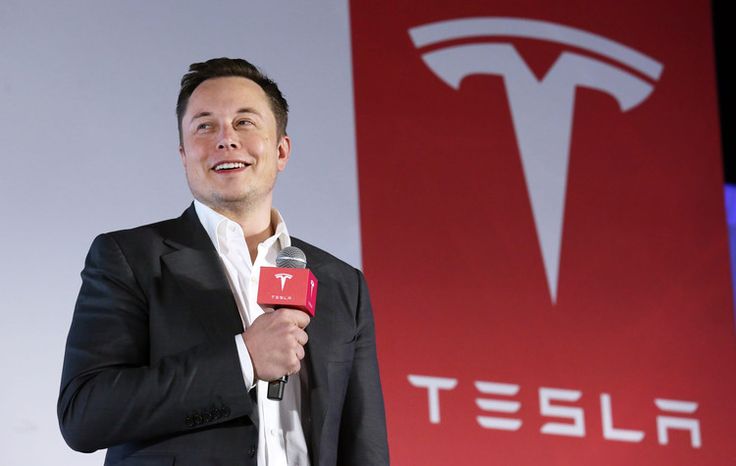Tesla Dealership Torched in France: Arson Attack Linked to Anti-Musk Sentiment and Political Activism
In recent weeks, Tesla, the world-renowned electric vehicle (EV) maker, has found itself at the center of a storm of controversy, attracting not just political criticism but also direct acts of defiance. From arson attacks on Tesla showrooms to growing anti-Musk sentiment, the company and its CEO, Elon Musk, are facing increasing hostility worldwide.
The most significant of these incidents occurred in southern France, where a suspected arson attack on a Tesla dealership in Plaisance-du-Touch on March 3, 2025, left a dozen cars destroyed. The perpetrators, claiming responsibility through an anarchist group, made no attempt to conceal their motives. In their statement, they denounced what they see as a global "fascist, patriarchal, genocidal, and colonialist project" led by elites, including Musk. They justified their action as a form of protest against what they perceive as Musk’s alignment with right-wing ideologies and political figures, particularly his controversial support for far-right movements in Europe and the United States.
The attack was not an isolated incident. In Seattle, four Cybertrucks were torched in a similar fashion, and across the U.S., several other Tesla showrooms have been targeted. In Colorado, Molotov cocktails were thrown at a dealership, accompanied by the graffiti "Nazi cars," signaling the increasingly volatile relationship between Tesla and various protest movements. These incidents are opposition to Musk's business practices and his role as a political figure influencing policies beyond the automotive industry.
Tesla’s Controversial CEO: Elon Musk’s Political Stances Under Fire
Elon Musk, who has long been a divisive figure, seems to have attracted more ire than ever before. His recent actions, particularly his alignment with controversial political figures like the U.S. President Donald Trump, have brought his personal politics into the spotlight. Musk's attendance at a far-right political event in Germany, where he made remarks that seemed to downplay the past of an extremist party with ties to the Holocaust, only added fuel to the fire. Critics have called his comments “dangerous” and "provocative," especially in a European context where the legacy of World War II and its aftermath is deeply ingrained in collective memory.
Musk's political activism has extended beyond his controversial comments to direct influence over governmental decisions. His appointment as the head of the Department of Government Efficiency (DOGE) in the U.S. raised eyebrows when he advocated for significant cuts to government programs. These cuts, many argue, disproportionately affect vulnerable communities. His backing of policies that many critics deem harmful has only intensified the growing backlash against him and his companies.
The Growing Anti-Tesla Sentiment in Europe and Beyond
Tesla, once celebrated for its innovation in electric cars, is now facing a different kind of challenge: a fierce and vocal opposition that sees the company and its CEO as symbols of a global agenda they refuse to support. In Europe, where Tesla has made significant inroads, sales of its vehicles have seen a sharp decline. Much of this is attributed to Musk's political leanings and the increasing perception that Tesla represents a corporate giant in alliance with right-wing ideologies. Protests have escalated in both France and Germany, with acts of vandalism and sabotage becoming more frequent.
In France, the arson attack in Toulouse was a direct response to what activists view as Musk’s dangerous political influence. According to reports, a group of anarchists took responsibility for the attack, saying they wanted to "greet" Tesla in a way that would make their discontent clear. The fire destroyed the vehicles and symbolized the growing rift between corporate power and grassroots activism. The group’s slogan, "Welcome Spring, Burn a Tesla!" indicates that these kinds of protests may not be isolated incidents but part of a broader movement aimed at targeting Tesla and its CEO.
This wave of protests has brought Tesla's public image under scrutiny. The company’s market value has dipped significantly, and its once-strong hold on the EV market is weakening. While the company continues to innovate with products like the Cybertruck and Tesla's expansion into autonomous driving technology, the growing opposition to Musk's politics has put a damper on the brand's appeal, particularly in regions that are now seeing Tesla as a symbol of more than just electric innovation.
The controversy surrounding Musk is the influence of billionaires on global affairs. Musk's actions, whether perceived as political or business-driven, have sparked debates about corporate responsibility, the power of tech moguls, and the future of democracy in the age of big business.
What’s Next for Tesla?
As Tesla faces mounting challenges on the global stage, it remains to be seen how the company will navigate these turbulent waters.
Will it continue to innovate and push the boundaries of electric vehicle technology, or will Musk’s controversial political stances overshadow its business achievements?
The escalating protests and attacks against Tesla may force the company to reconsider its image and approach to corporate responsibility.
For now, Tesla and Elon Musk are in the eye of the storm. But as activists ramp up their efforts, Tesla’s future may hinge on the success of its products and also on how it manages its relationship with the politics in which it operates. As Musk continues to occupy the spotlight, his actions—both in business and politics—will undoubtedly shape the direction of his companies and their role in the global economy.
In the end, the rising tide of anti-Tesla sentiment serves as a reminder of how intertwined technology, business, and politics have become in the 21st century. And with Elon Musk at the helm, Tesla's story is bound to continue provoking intense debate, fierce opposition, and passionate support. The question now is how this new chapter will unfold.















No comments